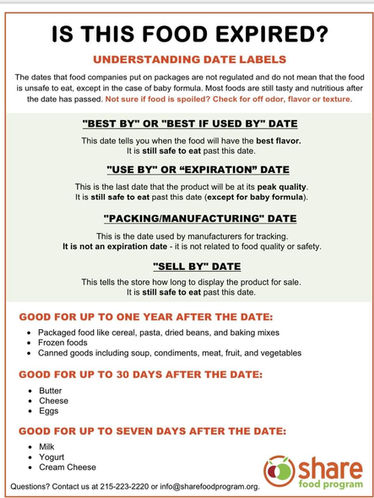

Maine SNAP-Ed provides free nutrition education services for low-income populations in eligible settings like schools, libraries, food pantries, childcare settings, grocery stores, workplaces, and more. The program aims to reach every community within the state of Maine to create accessible nutrition education opportunities for low-income Mainers. Using evidence-based curricula and multi-level community-based approaches, Maine SNAP-Ed helps to make balanced eating easy & accessible, regardless of budget.
In our state of Maine, SNAP-Ed is funded by the United States Department of Agriculture (USDA) and administered by the Office for Family Independence (OFI) at the Maine Department of Health and Human Services. Programming is implemented through a contract with the University of New England in partnership with local community organizations, like us, PBCHP!
Learn more about the statewide Maine SNAP-Ed program here!
Nutrition Education Services
Free for all eligible sites in Knox County!
Nutrition education series can be conducted in-person, or virtual-live.
To view a PDF Menu of Services: Click "Youth & Teens" or "Adults & Families" below.
(Titles will link to a brief one-page curriculum description, if available.)

Growing Active Readers (formerly iGrow)
Food Smarts Kids
Cooking Matters for Kids
Cooking Matters for Teens
*Series available for parents/caregivers

Cooking Matters for Adults
Cooking Matters for Parents/Caregivers
Cooking Matters for Families
Cooking Matters @ the Store
Cooking Matters for
Childcare Professionals

In the Community
Connection to Resources
Policy Advocacy
Gardening Initiatives
Farmer's Market Promotion
Community Events
School Wellness Programs
Workplace Wellness
Public Outreach Efforts


Meet your educator, Day!
Day Arnold, BSND, is one of 40 Maine SNAP-Ed nutrition educators appointed to counties across the state. She is passionate about nutrition as it affects mental health, sharing essential nutrition knowledge using trauma-informed principles, and creating a comfortable and supportive learning environment.
Please feel free to reach out with questions about SNAP-Ed programming, local food assistance programs, or nutrition resources.
Upcoming Classes & Opportunites
Click on the flyers below to expand for a closer look.
Download and sharing options are available when expanded.


Site Eligibility for
Direct Nutrition Education
Direct education is any nutrition education series (classes) conducted for any age group, in-person or virtually.
Automatically Eligible:
-
Those reached through direct marketing to SNAP participants
-
Parents who receive SNAP benefits on behalf of their children
-
SNAP participants in a SNAP job readiness program
-
Summer Food Service Program (SFSP) sites
-
Anyone eligible for WIC, TANF, or SSI
-
Food banks, food pantries, or soup kitchens
-
All Federally-qualified Healthcare Centers (FQHCs)
-
Individuals and families residing in public housing
-
Anyone referred by the DHHS/SNAP office
-
CEP (Community Eligibility Provision) schools
-
All Head Start programs, parents & employees
-
All Fedcap sites
Must have a student population where at least
50% receive Free and Reduced Lunch.
If a school does not qualify based on Free and Reduced Lunch Rates and can prove that 50% of students are children from low-income households, please reach out to inquire about other methods of eligibility verification.
All other eligibility determinations coincide with CACFP/SFSP Area Eligibility.
Please note that the following populations are not eligible for programming under the Maine SNAP-Ed grant:
People who are currently incarcerated
Residents of nursing homes
Full-time students attending college or university, unless eligible for SNAP

Download Free Printables!
Click on the files below for a closer look.
Download and sharing options are available when expanded.
Chow down on these fresh posts!
In accordance with federal civil rights laws and U.S. Department of Agriculture (USDA) civil rights regulations and policies, the USDA, its agencies, offices, and employees, and institutions participating in or administering USDA programs are prohibited from discriminating based on race, color, national origin, sex (including gender identity and sexual orientation), religious creed, disability, age, political beliefs, or reprisal or retaliation for prior civil rights activity in any program or activity conducted or funded by USDA. Programs that receive federal financial assistance from the U.S. Department of Health and Human Services (HHS), such as Temporary Assistance for Needy Families (TANF), and programs HHS directly operates are also prohibited from discrimination under federal civil rights laws and HHS regulations. Persons with disabilities who require alternative means of communication for program information (e.g., Braille, large print, audiotape, American Sign Language), should contact the agency (state or local) where they applied for benefits. Individuals who are deaf, hard of hearing or who have speech disabilities may contact USDA through the Federal Relay Service at (800) 877-8339. Additionally, program information may be made available in languages other than English. CIVIL RIGHTS COMPLAINTS INVOLVING USDA PROGRAMS USDA provides federal financial assistance for many food security and hunger reduction programs such as the Supplemental Nutrition Assistance Program (SNAP), the Food Distribution Program on Indian Reservations (FDPIR) and others. To file a program complaint of discrimination, complete the Program Discrimination Complaint Form, (AD-3027) (found online at: How to File a Complaint, and at any USDA office) or write a letter addressed to USDA and provide in the letter all of the information requested in the form. To request a copy of the complaint form, call (866) 632-9992. Submit your completed form or letter to USDA by: 1. mail: Food and Nutrition Service, USDA 1320 Braddock Place, Room 334, Alexandria, VA 22314; or 2. fax: (833) 256-1665 or (202) 690-7442; or 3. phone: (833) 620-1071; or 4. email: FNSCIVILRIGHTSCOMPLAINTS@usda.gov. For any other information regarding SNAP issues, persons should either contact the USDA SNAP hotline number at (800) 221-5689, which is also in Spanish, or call the state information/hotline numbers (click the link for a listing of hotline numbers by state); found online at: SNAP hotline. This institution is an equal opportunity provider.

















